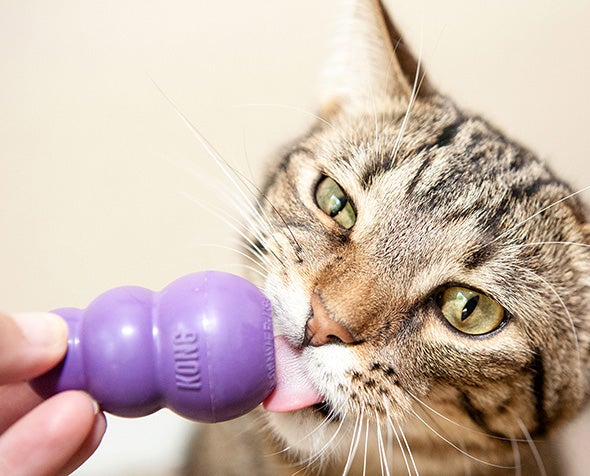Ritchie School Students Build Assistive Technology

Students in this year’s Introduction to Engineering Design class faced a unique challenge: Developing assistive devices for the elderly and people with disabilities in their own communities and families.
Throughout fall quarter, teams of first years conducted interviews, identified needs, and designed and prototyped assistive technology to help people in their day-to-day lives. The devices, which ranged from an adaptive writing device and a movable closet bar to a portable tennis ball launcher and utensils that counteract hand tremors, better enable everyday tasks like getting dressed, completing schoolwork, eating and exercising.
The goal of the project, says Breigh Roszelle, teaching professor and associate dean of undergraduate studies at the Ritchie School of Engineering and Computer Science, was to immerse students in human-centered design. “I think it gives students a perspective on being able to help someone and make a difference,” she says. “It's not, ‘I have to go build a Mars rover,’ or ‘I have to build an AI robot.’ It is something that might seem simple, but it can be incredibly impactful.”
Beyond creating useful technology that can directly improve the lives of students’ friends, families and communities, the project exemplified important elements of successful careers in engineering. Communication and collaboration, Roszelle says, are crucial skills for engineers.
“They're an important part of life, and they’re an important part of engineering,” she says. “I think sometimes students think, ‘Oh, engineers are introverts, they don't have to work with other people.’ And that is 100% not true.” Throughout the fall, students gained first-hand experience in both, communicating with community members and peers to identify day-to-day challenges at the start of the quarter and collaborating with their classmates through six weeks of learning, designing and prototyping.
An entrepreneurial mindset is also a beneficial trait for engineers, Roszelle says. “Part of that is creating value. And when you look at huge engineering feats like space travel and satellites, they do create value, but being able to create value for a single group of people that really need it is also important.”
After interviewing a family member, Gabby Hoyer, a first-year mechanical engineering student from Madison, Wisconsin, and her group developed an assistive utensil. “The prototype was a fork for individuals with hand tremors,” Hoyer says. “In my family member’s case, his hand would shake so much that the food would fall off the fork. Since that was really frustrating, we decided to try to make a fork that would counteract the shaking so that they can eat with minimal spillage and struggle.”
Throughout the project, Hoyer’s group utilized SolidWorks for computer-aided design, creating plans for several different forks and spoons. Much of the prototyping process required 3D printing complicated, multi-component assemblies. Combining the most functional elements of each of the designs, Hoyer’s final prototype looks much like a typical fork, with a compensating grip to increase stability.
The core combination of technical skills, collaboration and a personal connection made the project all the more rewarding, Hoyer says. “It was nice to get a glimpse of what engineers actually do. A lot of the education that I know is coming up is going to be physics, calculus and all these different things that explain how engineering works—the principles behind it. But this project allowed us to see the process that engineers go through.”
Finding solutions for problems in their own communities is just the beginning. Engineering students in the Ritchie School also complete year-long Senior Design Projects, where teams of students work with DU faculty and industry sponsors—such as Lockheed Martin, BOA Technology and Craig Hospital— to develop, test and deliver solutions to real-life problems in their fields.











